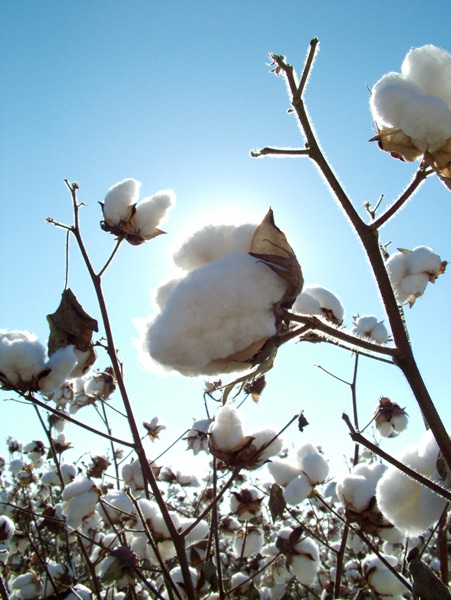
It’s bad enough to deal with a year-long drought that literally dries up non-irrigated, spring-planted crops and leaves farmers wondering what might have been if they could harvest a decent grain or cotton crop with prices at near historic levels.
But watching a good portion of an irrigated cotton crop destroyed by a three-hour rain and hail storm adds insult to the injury.
“We lost 600 acres of good irrigated cotton,” says Floyd County, Texas, farmer Don Marble. “That storm kicked us around pretty bad.”
Marble said rain started about 3 p.m. July 11 and continued until 6 p.m. “It hailed the entire time.”
He says lakes are full but that most of the rain just ran off and did little immediate good but a lot of damage.
And most of the area remains bone-dry. “We will not make a row of dryland cotton in the Texas plains,” he says. “And we’re spending money like you wouldn’t believe on the irrigated crop.” Electricity bills are enormous.
Multi-peril insurance will be the salvation of many Texas cotton farmers this year, Marble says. “We’ll get about $1.23 a pound from multi-peril policies and the pilot insurance program for cottonseed will bump that up to $1.32 a pound.”
It’s not as good as making a crop, he says, but “insurance will keep us rolling.”
Marble says he’s hopeful. “It looks like it wants to start raining. We had about an inch a week ago, maybe an inch-and-a-half at the farm office.”
Reports coming in to Plains Cotton Growers, Inc., in Lubbock may bear that out.
Mary Jane Buerkle,PCGdirector of communications and public affairs, says the area where Marble farms is where most of the rain fell(the northern Floyd/southern Briscoe County area).
Several farmers have gotten rain in the last few days, based on information Buerkle and PCG Executive Director Steve Verett have received. “Parts of western Dawson County and eastern Gaines County got from 1 inch to 2 inches.”
PCG reports indicate Parmer and Bailey Counties have been getting rain fairly regularly over the past few evenings. “The Mesonet shows that Cochran County (Morton) has gotten some decent rains (1to 2 inches). Brad Heffington in Littlefield said he got 2 to 3 inches north of Spade (in Lamb County). And Barry Evans reports about an inch near Kress Monday night/Tuesday morning.
Other areas have not been as fortunate.
Myrl Mitchell, Lenore, Texas, farmer and a retired ginner, says he and his son will not make any cotton from the 1,200 acres they planted.
“I’ve been here since the 1950s, and I’ve never seen it this bad,” he says. “I got here just after the 1950s drought, so I can’t compare to that, but this is the worst I’ve ever seen.”
Bill Murff, a Southeast Texas turf farmer from Crosby, in Harris County, says drought has hit his area hard as well. “It’s killing us,” he says. “We’re just not growing any grass. We haven’t had a decent rain in six months.”
He says infrequent showers have hit isolated spots but no appreciable rainfall has fallen across most of the region.
Todd Baughman, Texas AgriLife Extension agronomist in the Vernon Research and Extension Center, said at the recent American Peanut Research and Education Society (APRES) meeting that the current drought is “as bad as I’ve seen it in 15 years.”
He said state peanut average likely will dip to around 3,000 pounds per acre this year, down from a typical 3,500-pound estimate. He says typical irrigated cotton yields of three bales per acre or better may be closer to two bales this year.
“Many farmers can’t get enough water on to keep up with moisture demand,” he says.
Oklahoma research and Extension scientists at that same meeting said the drought is bad but the heat is the worse than it’s been in years.
Baughman said Texas peanut production had already taken a big hit with a 50-percent reduction in planted acreage. “We will make a crop. Peanut farmers planted on their best water so they will be able to irrigate.”
He said dryland cotton is another story. “Dryland cotton is gone.”
Shelly Nutt, executive director, Texas Peanut Producers Board, said in her welcoming remarks to the APRES general session that much of Texas had gone “more than 11 months without significant rainfall. Texas is as dry as or drier than the Sahara Desert,” she said.
“Cattlemen are culling herds to limit feed costs; lakes are drying up; corn acreage is being abandoned; and many communities are looking at water restrictions.”
About the Author(s)
You May Also Like






